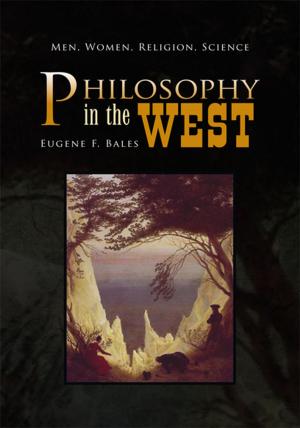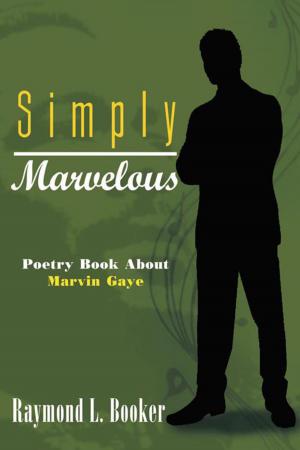| Author: | John Gilligan | ISBN: | 9781465331274 |
| Publisher: | Xlibris US | Publication: | March 12, 2009 |
| Imprint: | Xlibris US | Language: | English |
| Author: | John Gilligan |
| ISBN: | 9781465331274 |
| Publisher: | Xlibris US |
| Publication: | March 12, 2009 |
| Imprint: | Xlibris US |
| Language: | English |
The major proposition of the Soul of America is that America consists in a set of beliefstruthsthat bind us together. Its what makes us Americans. And without that belief, no Constitution, no laws, no whatever, except the point of a sword, can keep us together. Truth has moral implications. But truth in American culture has become negotiable. Herein lies the real cultural crisis of America.
Gilligan's Book Is Required Reading For Everyone Who Cares About America's Future
John Gilligan has given us a book for the ages. This work is a compilation of essays he authored over several decades that were published in his local newspaper the Peoria Journal Star. The essays are reader-friendly, packed with historical facts and insights, and written by someone who clearly has great love for his country. The essays progress in three sections from the founding of our country, to our current cultural and political problems, to what it means to be a patriot in our country today. Gilligan is concerned that the American people have lost sight of the beliefs and principles that animate our Declaration of Independence. He discusses civic virtue and the common good. He notes that America is the first people in history to form a nation from a diversity of racial, ethnic, and religious groups under the motto, E Pluribus Unum, unity in diversity, and with the underlying fundamental belief that all men are created equal. But can this nation so conceived endure? In the second section of his book, Gilligan maps out the philosophical, cultural, and political changes that challenge Americas survival: cultural relativism, spiritual cynicism, political apathy, self-indulgence, personal violence, racial and ethnic hatreds, and a general blurring of the distinction between right and wrong. He questions whether there is any longer a unity in the diversity and wonders whether we, as a country, have veered so far from our founders lofty and noble precepts that we have passed the point of no return. He rejects this notion, however, and in the last section of his book Gilligan discusses what it means to be patriotic in todays society. He writes about the American project, and argues that if Americas problems are to be solved, the heavy lifting must start in the local communities. Each citizen must take responsibility for his or her actions if America is to thrive and continue to fulfill the goals and dreams of her founders. This is a wonderful little book that encourages us to reflect on the essence of America, the great experiment all of us are blessed to be a part of, and what we might do to keep America great. It is required reading for everyone who cares about the soul of America.
The major proposition of the Soul of America is that America consists in a set of beliefstruthsthat bind us together. Its what makes us Americans. And without that belief, no Constitution, no laws, no whatever, except the point of a sword, can keep us together. Truth has moral implications. But truth in American culture has become negotiable. Herein lies the real cultural crisis of America.
Gilligan's Book Is Required Reading For Everyone Who Cares About America's Future
John Gilligan has given us a book for the ages. This work is a compilation of essays he authored over several decades that were published in his local newspaper the Peoria Journal Star. The essays are reader-friendly, packed with historical facts and insights, and written by someone who clearly has great love for his country. The essays progress in three sections from the founding of our country, to our current cultural and political problems, to what it means to be a patriot in our country today. Gilligan is concerned that the American people have lost sight of the beliefs and principles that animate our Declaration of Independence. He discusses civic virtue and the common good. He notes that America is the first people in history to form a nation from a diversity of racial, ethnic, and religious groups under the motto, E Pluribus Unum, unity in diversity, and with the underlying fundamental belief that all men are created equal. But can this nation so conceived endure? In the second section of his book, Gilligan maps out the philosophical, cultural, and political changes that challenge Americas survival: cultural relativism, spiritual cynicism, political apathy, self-indulgence, personal violence, racial and ethnic hatreds, and a general blurring of the distinction between right and wrong. He questions whether there is any longer a unity in the diversity and wonders whether we, as a country, have veered so far from our founders lofty and noble precepts that we have passed the point of no return. He rejects this notion, however, and in the last section of his book Gilligan discusses what it means to be patriotic in todays society. He writes about the American project, and argues that if Americas problems are to be solved, the heavy lifting must start in the local communities. Each citizen must take responsibility for his or her actions if America is to thrive and continue to fulfill the goals and dreams of her founders. This is a wonderful little book that encourages us to reflect on the essence of America, the great experiment all of us are blessed to be a part of, and what we might do to keep America great. It is required reading for everyone who cares about the soul of America.















